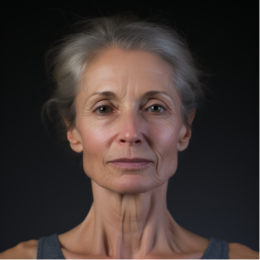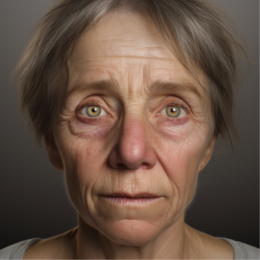What Worsens Parkinson’s Disease?

This condition affects millions worldwide, and while there’s no cure yet, understanding what can worsen it is crucial.
What Is Parkinson’s?
Parkinson’s disease (PD) is a chronic degenerative disorder affecting both the motor and non-motor systems of the central nervous system. The disease usually manifests slowly, with early symptoms including tremors, rigidity, slow movement, and difficulty walking. As the disease progresses, non-motor symptoms like cognitive issues, behavioral changes, sleep disturbances, and sensory problems become more common.
The disease is primarily seen in individuals over 60 and affects more males than females. The exact cause of PD is unknown, but it is believed to involve a combination of genetic and environmental factors.
Statistics:
- An estimated 10 million people worldwide are living with Parkinson’s.
- Men are 1.5 times more likely to have Parkinson’s than women.
What Worsens Parkinson’s Disease?
1. Aging
Aging is an inevitable part of life, but it comes with its own set of challenges, especially for those with Parkinson’s. Nearly 1% of people over the age of 60 are diagnosed with Parkinson’s. As you age, regular medical check-ups become increasingly important, and you may need to adjust your treatment plan to manage the progressing symptoms effectively.
2. Environmental Factors
Sarah’s experience of living near an industrial zone for decades highlights the role environmental factors can play in worsening Parkinson’s. Research indicates that exposure to certain chemicals and pollutants can exacerbate the condition. If you live in an area with high levels of industrial activity or pesticide use, consider discussing potential risks with your healthcare provider.
3. Lifestyle & Dietary Habits
Sarah’s love for fast food and sugary drinks had to take a back seat when she learned about the impact of a poor diet on Parkinson’s. A balanced diet rich in antioxidants, fruits, and vegetables and low in saturated fats and sugars can make a difference in symptom management.
4. Chronic Stress
Stressful periods in Sarah’s life, such as work deadlines or family emergencies, have led to a noticeable worsening of her symptoms. Chronic stress can lead to the release of hormones like cortisol, which can accelerate the degeneration of neurons. Stress management techniques like meditation, deep-breathing exercises, and even short walks can be beneficial.
5. Emotional Factors
Sarah’s battle with depression took a toll not just on her emotional well-being but also worsened her Parkinson’s symptoms. Emotional factors like depression and anxiety can have a profound impact on your physical health. It’s essential to consult mental health professionals for coping strategies and possibly medication to manage these emotional challenges.
6. Infections
Sarah’s severe bout of pneumonia was a wake-up call. Infections can cause inflammation in the brain, which can exacerbate Parkinson’s symptoms. It’s crucial to treat any conditions promptly and consult your healthcare provider for the best course of action.
7. Medicines
Sarah learned that some over-the-counter medications could interact negatively with her Parkinson’s medication. Always consult your healthcare provider before starting any new medicines, even for a seemingly unrelated condition like a cold or allergies.
Quick Poll
Treatment for Parkinson’s Disease
1. Medication
Sarah’s primary treatment involves Levodopa, but she also takes additional medications for her depression and insomnia. It’s crucial to have a comprehensive treatment plan tailored to your specific symptoms and conditions. Regular consultations with your healthcare provider can help adjust your medication as your symptoms progress.
2. Surgery
Deep Brain Stimulation (DBS) is a surgical option for those with advanced Parkinson’s. Sarah is actively discussing this with her healthcare team as her symptoms have become more debilitating. DBS involves implanting a device to stimulate specific brain regions, helping to manage symptoms more effectively.
3. Alternative Therapies
While these are not a substitute for medical treatment, they have provided her some relief. Always consult your healthcare provider before incorporating alternative therapies into your treatment plan.

Can You Slow Down Parkinson’s Progression?
While there’s no foolproof way to stop Parkinson’s from progressing, certain lifestyle changes can make a significant difference. Sarah has adopted a Mediterranean diet rich in fruits, vegetables, and fish, and she exercises regularly. She also practices mindfulness to manage her stress levels.
Tips:
- Engage in regular physical activity, such as walking or swimming.
- Adopt a balanced diet rich in antioxidants and low in saturated fats.
- Incorporate stress management techniques like mindfulness and meditation into your daily routine.
- Keep a symptom diary and consult your healthcare provider regularly for personalized advice.
When to Speak with a Doctor
Sarah keeps a detailed symptom diary, noting any changes in her tremors, stiffness, or emotional well-being. This diary has proven invaluable during her medical consultations. If you notice any new or worsening symptoms, don’t hesitate to consult your healthcare provider. Early intervention can make a significant difference in your treatment and quality of life.
Takeaway
Navigating the complexities of Parkinson’s disease is a challenging experience, not just for the individual but also for their loved ones.
PLEASE SHARE YOUR EXPERIENCE AND THE COMMENTS BELOW SO WE CAN HELP EACH OTHER WITH THE KNOWLEDGE YOU HAVE GAINED.





